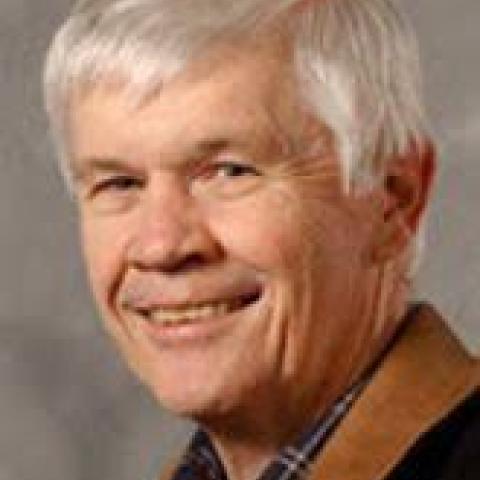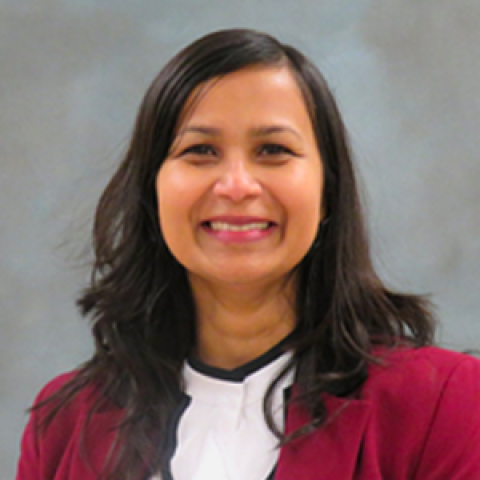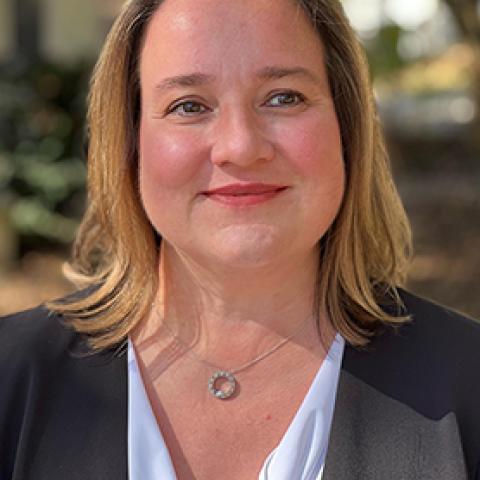James Foley



Alex Endert is an Associate Professor in the School of Interactive Computing at Georgia Tech. He directs the Visual Analytics Lab, where he works with his students to design and study how interactive visual tools help people make sense of data and AI. His lab often tests these advances in domains, including intelligence analysis, cyber security, decision-making, manufacturing safety, and others. His lab receives generous support from sponsors, including NSF, DOD, DHS, DARPA, DOE, and industry. In 2018, he received a CAREER award from the National Science Foundation for his work on visual analytics by demonstration. He received his Ph.D. in Computer Science from Virginia Tech in 2012. In 2013, his work on Semantic Interaction was awarded the IEEE VGTC VPG Pioneers Group Doctoral Dissertation Award, and the Virginia Tech Computer Science Best Dissertation Award.
Visual Analytics

Technological non-profit and NGO support; Social Impacts of Computing Technology; Core Computing Infrastructure


Carl DiSalvo is an Associate Professor in the Digital Media Program in the School of Literature, Media, and Communication at the Georgia Institute of Technology. At Georgia Tech he directs the Public Design Workshop: a design research studio that explores socially engaged design and civic media.
DiSalvo is also co-director of the Digital Interdisciplinary Liberal Arts Center and its Digital Civics initiative, funded by the Mellon Foundation, and he leads the Serve-Learn-Sustain Fellows program, which brings together faculty, staff, students, and community partners to explore pressing social research themes (the 2016-2017 themes are Smart Cities and Food, Energy, Water, Systems). He has a courtesy appointment in the School of Interactive Computing and is an affiliate of the GVU Center and the Center for Urban Innovation. DiSalvo also coordinates the Digital Media track of the interdisciplinary M.S. in Human-Computer Interaction.
DiSalvo’s scholarship draws together theories and methods from design research and design studies, the social sciences, and the humanities, to analyze the social and political qualities of design, and to prototype experimental systems and services. Current research domains include civics, smart cities, the Internet of Things, food systems, and environmental monitoring. Across these domains, DiSalvo is interested in how practices of participatory and public design work to articulate issues and provide resources for new forms of collective action.
Areas of Expertise:
Design; Sustainability and Design; Design and the Humanities; New Media Art/Art and Technology; Public Enagagement with Technology; Participatory Media/Participatory Culture; Design and Culture/Society

Dr. Dellaert does research in the areas of robotics and computer vision, which present some of the most exciting challenges to anyone interested in artificial intelligence. He is especially keen on Bayesian inference approaches to the difficult inverse problems that keep popping up in these areas. In many cases, exact solutions to these problems are intractable, and as such he is interested in examining whether Monte Carlo (sampling-based) approxIMaTions are applicable in those cases.
Advanced sequential Monte Carlo methods; Spatio-Temporal Reconstruction from Images; Simultaneous Localization and Mapping; Robotics; Computer Vision

Aditi Das did her BSc. (Hons.) Chemistry from St. Stephen's College Delhi, followed by M.S. (Chemistry) from I.I.T (Kanpur). She received her Ph.D. in Chemistry from Princeton University. She did post-doctoral work with Prof. Steve Sligar. She joined University of Illinois, Urbana-Champaign (UIUC) as a tenure track assistant professor in 2012. In 2019, she was promoted to associate professor with tenure. In 2022, she joined School of Chemistry and Biochemistry at Georgia Institute of Technology as an associate professor with tenure. Her research is in the area of enzymology of oxygenases that are involved lipid metabolism and cannabinoid metabolism.
Das is recipient of an American Heart Associate (AHA) career award and has been funded by National Institute of Health (NIH - NIGMS, NIDA and NCCIH), USDA, and National Multiple Sclerosis Society (NMSS). Her research was recognized by several National awards: Young Investigator award From Eicosanoid Research Foundation, Mary Swartz Rose Young Investigator Award and E.L.R. Stokstad award from American Society for Nutrition (ASN) for outstanding research on bioactive compounds for human health. She is also the recipient of Zoetis Research Excellence Award from her college. She was a co-organizer of the International Conference on Cytochrome P450. Recently her laboratory contributed several papers on cannabinoid metabolism by p450s. In recognition of this work, she was awarded El Sohly award from the ACS-Cannabis division for excellence in Cannabis research and is invited to give plenary lecture at ISSX meeting. Das is also a standing study section member of BBM NIH study section.

Maribeth Gandy Coleman is a Regent's Researcher and Director of Research for the Institute of People and Technology at Georgia Tech. She received a B.S. in Computer Engineering as well as a M.S. and Ph.D. in Computer Science from Georgia Tech. In her 20+ as a research faculty member her work has been focused on the intersection of technology for mobile/wearable computing, augmented reality, human computer interaction, assistive technology, and gaming. She is a computer scientist focused on developing novel and scientifically validated systems at the “human technology frontier” designed for purposes such as training, rehabilitation, and cognitive training, utilizing cutting-edge technology such as augmented and virtual reality. For example, she lead an initiative (funded by National Science Foundation, Dept of Education, and ACT Inc.) to research the design of games for cognitive training and assessment for older adults, persons with disabilities, and K-12 students. She also previously led a project funded by Georgia Tech’s Health Systems Institute to develop home-based computer games for stroke rehabilitation. In her AR research, she is interested in advancing AR as a new medium by focusing on authoring, evaluation, and deployment. She was the lead architect on a large open source software project called the Designer’s Augmented Reality Toolkit (DART), which had thousands of users and was used to create a variety of large-scale AR systems. She was also co-PI on an NSF grant focused on the development of presence metrics for measuring engagement in AR environments using qualitative and quantitative data. She has also applied AR technologies to a STEM education project for teens, explored how AR interfaces can enhance user abilities during maintenance and repair tasks, and is currently studying the use AR and mobile technologies to make Internet of Things environments more approachable and useful to communities. In her Director role she is responsible for organizational leadership & strategic planning, fundraising, convening & managing diverse teams, industry/academic partnerships, and translational work including commercialization of intellectual property.
Augmented/Mixed Reality; Mobile/Wearable Computing; Gaming; Computer Audio; Assistive and Rehabilitation Technologies; Human Computer Interaction; Virtual Reality

